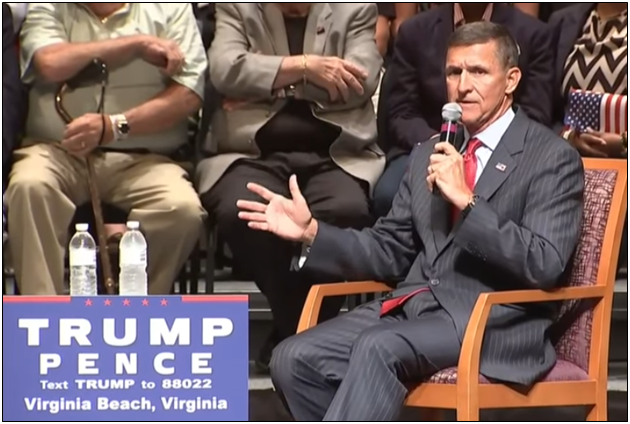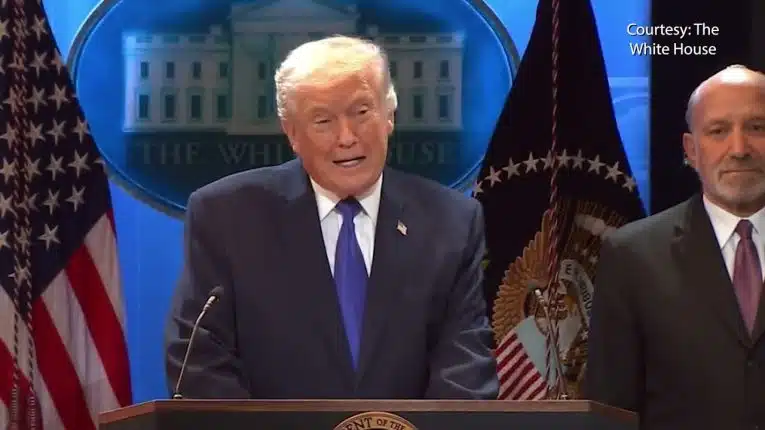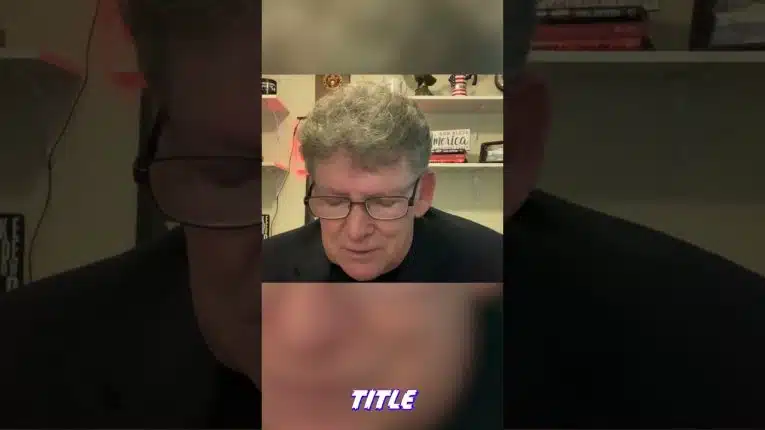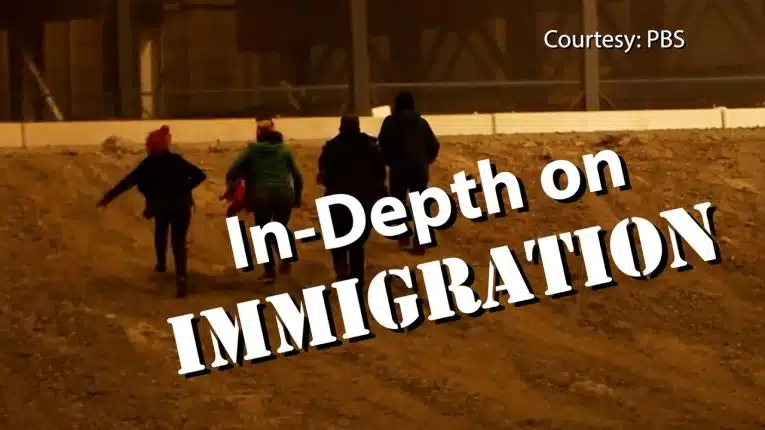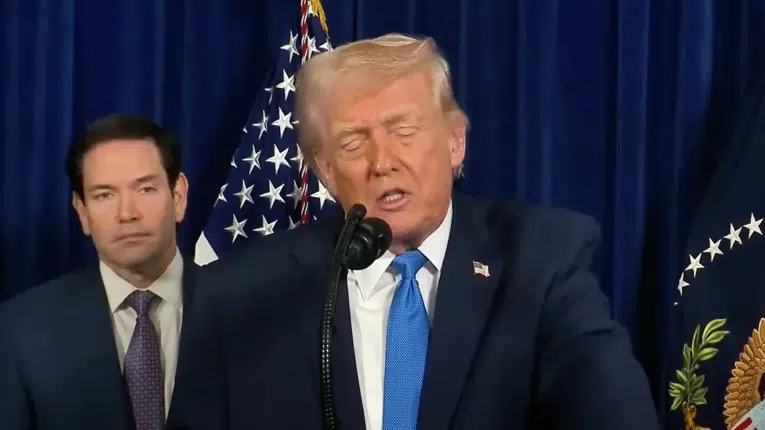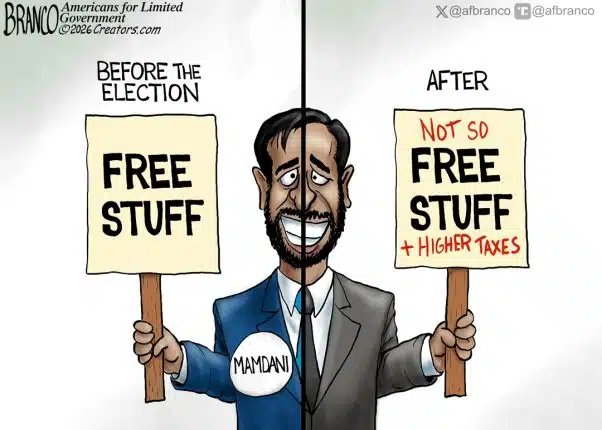The FBI set former National Security Advisor Michael Flynn up.
That is about all we can make of the latest revelation that the FBI made serious breaches of protocol when it set up the Jan. 24, 2017 meeting with Flynn to ask him about his Dec. 2016 conversations with Russian ambassador Sergey Kisylak without going through the White House Counsel first, having a lawyer present or advising him of his rights prior to the interview.
Former FBI James Comey even appeared on MSNBC to brag about the breach, stating, it was “something I probably wouldn’t have done or wouldn’t have gotten away with in a more organized administration… In the George W. Bush Administration or the Obama Administration, if the FBI wanted to send agents into the White House itself to interview a senior official, you would work through the White House counsel, there would be discussions and approvals and who would be there. And I thought, it’s early enough let’s just send a couple guys over.”
The Justice Department and the FBI engaged in misconduct in its questioning of Flynn and it ought to result in overturning Flynn’s conviction. We’ll see what Judge Emmet Sullivan does for Flynn’s sentencing.
In the meantime, it seems useful to retrace our steps to how we got to this point.
The only reason Flynn was questioned in the first place was because somebody in the Obama administration illegally leaked his conversation with Kislyak to the Washington Post’s David Ignatius on Jan. 12, 2017. Conducting damage control, Vice President Mike Pence went on CBS to say sanctions weren’t discussed.
The question is what crime was the FBI investigating on Jan. 24, 2017? Why question Flynn at all about his conversation with the ambassador? Other than to see if he’d lie or forgotten the substance of the conversation, that is?
The Washington Examiner’s Byron York reported on Dec. 3, 2017, “Former Deputy Attorney General Sally Yates has told Congress that the Logan Act was the first reason she intervened in the Flynn case — the reason FBI agents were sent to the White House to interview Flynn…”
But it wasn’t the Logan Act, an unenforced ancient U.S. law that unconstitutionally forbids private individuals from undermining U.S. foreign policy abroad. Just the day before the interrogation on Jan. 23, the Washington Post had a big report on Flynn’s conversation with the ambassador, stating the FBI had investigated and found no crime. Were they just trying to lull him into a sense of complacency?
Seems improper to interrogate somebody for something they didn’t even believe was a crime. Ultimately, as it is, Flynn was never charged by Mueller with any Logan Act violations—probably because they could not be supported. Americans have First Amendment rights after all.
Then there’s the instructions to the agents questioning Flynn were given where clearly the purpose was to test Flynn’s recollection, as revealed in the agents’ 302 statements, who decided before the meeting that if “Flynn said he did not remember something they knew he said, they would use the exact words Flynn used… to try to refresh his recollection. If Flynn still would not confirm what he said… they would not confront him or talk him through it.”
What was the crime they were there to investigate? There wasn’t any. On Jan. 24, 2017 the FBI was set loose on Flynn. Since the only thing he was charged with was lying to investigators and to our knowledge that’s what the essence of the interrogation was about, then the only reason to go there was to see if he’d perjure himself. They wanted to see if he’d lie or forget. There was no other reason to question him. That seems to fit the definition of a perjury trap, or else there’s no such thing.
The FBI investigators who interviewed Flynn did not think he lied at the time in the interview. This is borne out in now revealed 302 statements by the agents. They wanted to see if he would lie, and they didn’t think he did. It wasn’t until months later, after the Special Counsel was appointed, that Flynn was charged.
Some point to his Dec. 2015 trip to Moscow as a reason for Flynn being under additional suspicion, except there does not appear to have been anything suspicious at all. It was an interview led by a Russian reporter, Sophie Shevardnadze, in a public forum, at the Russia Today 10-year anniversary. Flynn briefed the Defense Department both before and after the event and had his security clearance reupped in April 2016 after the fact. Flynn did speak of potential for U.S.-Russian cooperation to defeat Islamic State, focusing on “mutual interests” and restoring “strategic stability” to the Middle East.
Flynn stated, “My wish and my hope is that we figure out a way strategically to work together, I think that that’s the way ahead. Whether or not we work together 20 years from now, I don’t know, but I know if we don’t work together right now, the potential for going to a larger conflict against each other or the potential for this enemy to do far more damage than they already have is very, very real.”
Flynn was there to sell the idea— to a journalist and her audience— that the U.S. and Russia had a common enemy in Islamic State and more broadly radical Islam, a proposal candidate Trump would adopt in 2016. On television, no less. Real clandestine! So, it doesn’t seem like much of a mystery. Any more so than Carter Page’s speech in Moscow in June 2016, which similarly was public for all to see. But maybe that outreach is the real reason behind this witch hunt, proposing a policy the Obama administration did not like. Maybe that was Flynn and Trump’s real crime.
The additional outreach to Kislyak then, in Dec. 2016, right before the Trump administration took charge, perhaps was the straw that broke the camel’s back for the Obama administration. They were done with him. Moreover, there would be no détente between Trump and Putin. They would see to that. First thing’s first, though, they needed to get rid of Flynn.
Whether Flynn lied or he didn’t, there was still the public record where Flynn told Pence that sanctions hadn’t been discussed. So, then the transcript itself was illegally leaked to the Washington Post on Feb. 9, 2017, where it was reported that Flynn had in fact discussed sanctions with Kislyak. We’re now told by the Special Counsel, and Flynn via his guilty plea, that this is what Flynn lied about to investigators. Maybe he forgot.
To get to the truth, the American people would need to see the portion of the transcript of Flynn’s conversation with Kislyak and the transcript of the interrogation or least what the agents said about the interrogation, and then see if Flynn was lying or simply not remembering what was said. Presumably the President could declassify that information.
Leaving that aside, after that, Flynn was fired by Trump, he says, because he lied to the Vice President and the FBI. Later, Trump allegedly told former FBI Director James Comey that Flynn hadn’t done anything wrong. Comey was subsequently fired.
Mueller was appointed, ostensibly, to investigate Russia collusion, but also the Comey firing and Trump allegedly telling Comey to go easy on Flynn, neither of which appear as crimes.
In fact, it appears there would have never been a Mueller probe if the classified conversation Flynn had with Kislyak had never been leaked in the first place. Flynn would have never briefed Pence, who would have never gone on television to say sanctions hadn’t been discussed when they were. Flynn would have never been questioned and thus never fired.
Go easy on Flynn, he’s a good guy, he didn’t do anything wrong. Isn’t that what Trump allegedly told Comey that was supposed to be the nexus of the “obstruction” case? Maybe it was not because of a corrupt intent to interfere with a federal investigation but a well-intentioned attempt to clear an innocent man of any wrongdoing.
In hindsight, it appears that Flynn was mistreated and the FBI engaged in misconduct in questioning Flynn, and the President was in a position to know those particulars in 2017. As the head of the executive branch, according to the very allegations on obstruction, Trump intervened with Comey to prevent an injustice from occurring.
Doesn’t the President have that power? If Flynn was innocent, or if Trump had reason to believe he might have been innocent, or at least that the investigation of Flynn had been wrongly pursued, then he had an obligation as an officer of the government to do something about it within the scope of his powers.
In the least, Trump according to Comey stated he thought Flynn hadn’t done anything wrong. Certainly, many are now arguing that Flynn was entrapped and that his conviction should be overturned.
Trump may have been right all along.
But this was all preventable. Or it should have been. What’s the point of having political oversight by the President of the executive branch under the Constitution if he supposedly is so powerless to do anything about administrative state Justice Department officials operating corruptly and with impunity to engage in such misconduct?
Is there no constitutional check on potential FBI misconduct by the President? The Justice Department just operates with impunity and without oversight and direction from the elected President? And if the President intervenes and attempt to execute the laws to prevent an injustice, that’s corrupt obstruction?
Does the President execute the laws under Article II or not? Or does the buck only stop with the Attorney General? While one might understand a desire perhaps to have a Justice Department free of the politics that the Presidency brings to the fore but reading the Constitution that’s exactly what the Framers produced in Article II. The President heads the executive branch. All other executive branch officials are subordinate to him alone.
Where does one find this fully independent Justice Department in the Constitution? Certainly we can already see the dreadful consequences of such an unaccountable institution play out with the Mueller probe. They apparently feel like they have to go all the way, they have to get rid of Trump one way or another, or it will have all been for naught.
But constitutionally at least, the Attorney General still works for the President. So does the FBI Director. The President can obviously fire either of them if they’re not enforcing the laws the way he wants. If prosecutorial discretion is a thing, the President has to have it. How is the President intervening to halt or in the case of Comey politely suggesting that an errant investigation be halted be anything but doing his just under the Vesting Clause? What’s the President’s job supposed to be but to faithfully execute the office of the President, which is to execute the laws, as he sees fit?
It seems possible that Flynn was innocent all along, and that the President knew it or at least thought it. But, his critics charge, he was not legally allowed to do anything about it.
So what should he have done instead? What was the non-obstruction method of curing this type of injustice? More broadly, what should a President do if the Justice Department acts corruptly in his eyes? Just let is play out? Hope a judge intervenes?
Because right now the Justice Department seems like a fairly unaccountable institution if nobody, not even the President, can control it, as it is removed from the consent of the governed equation. The President is accountable to the people via elections. But if the Justice Department is not accountable to the President (and therefore the people) who are they accountable to? Who do they answer to? Maybe Judge Emmet Sullivan will tell us.
Robert Romano is the Vice President of Public Policy at Americans for Limited Government.


